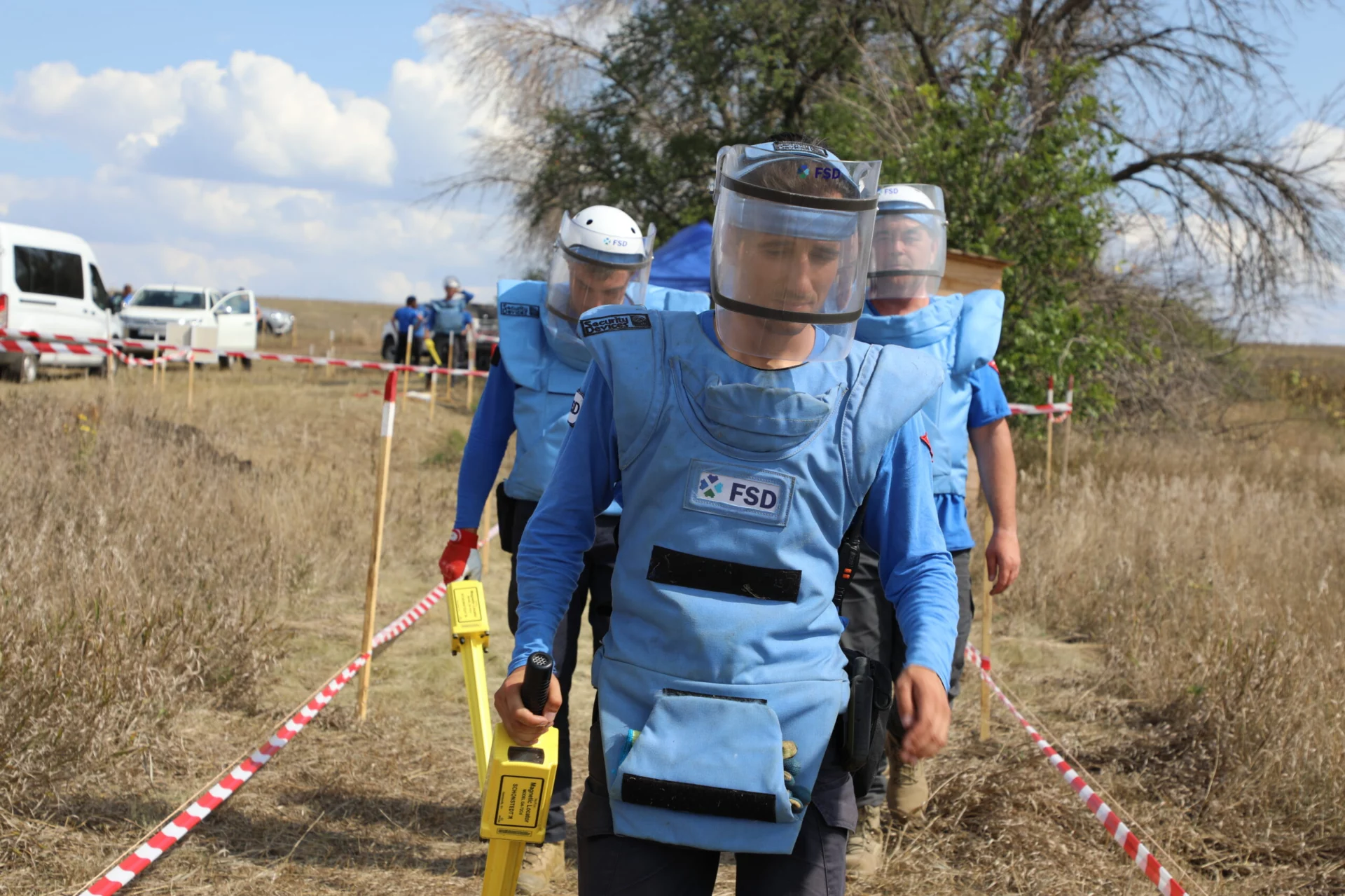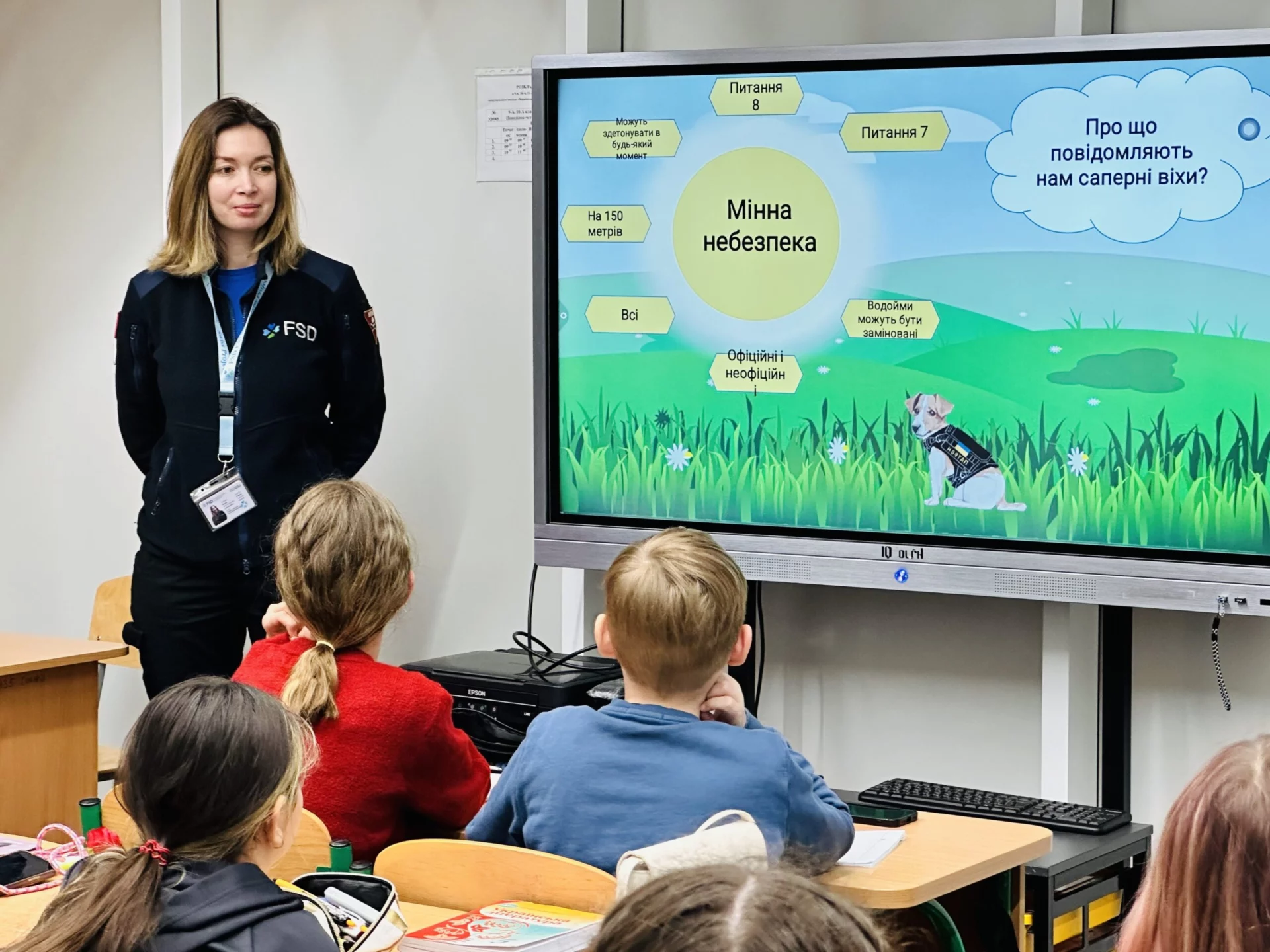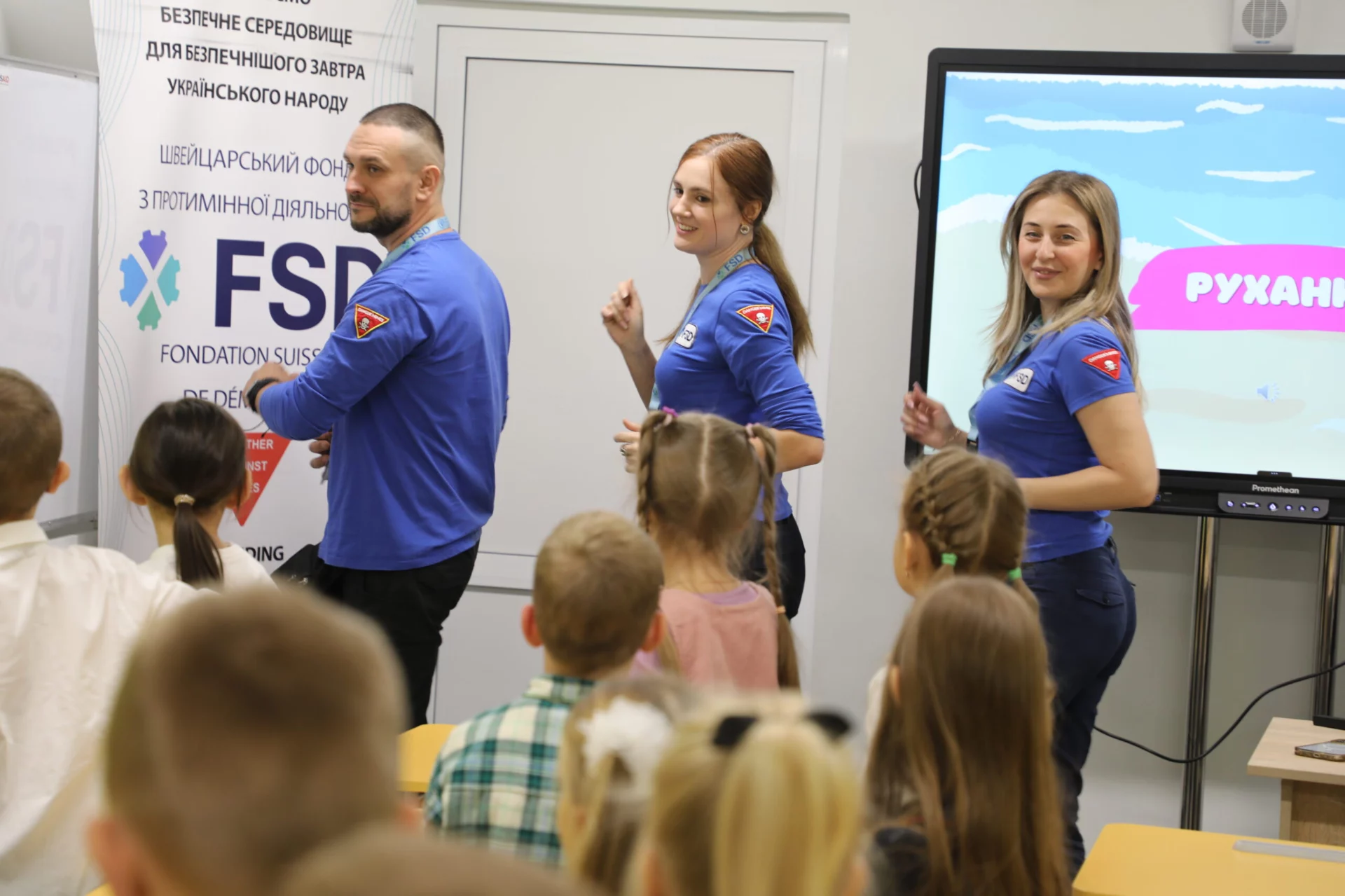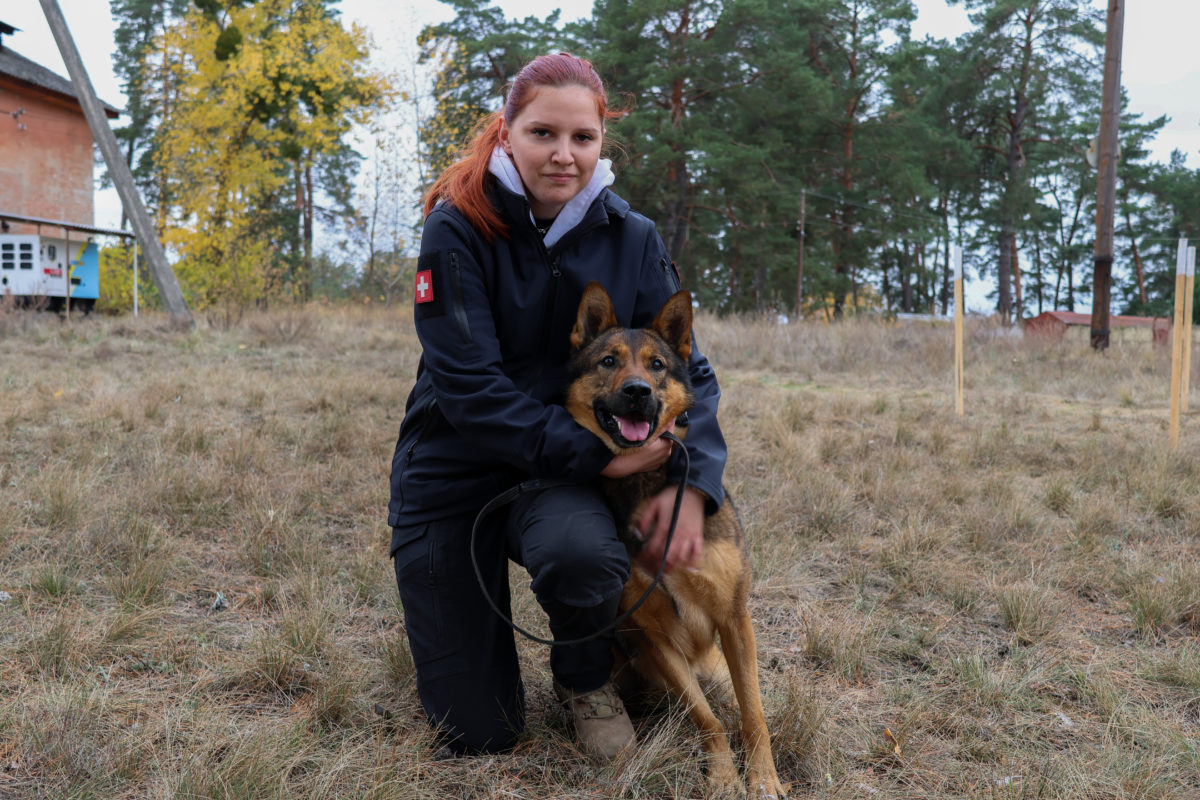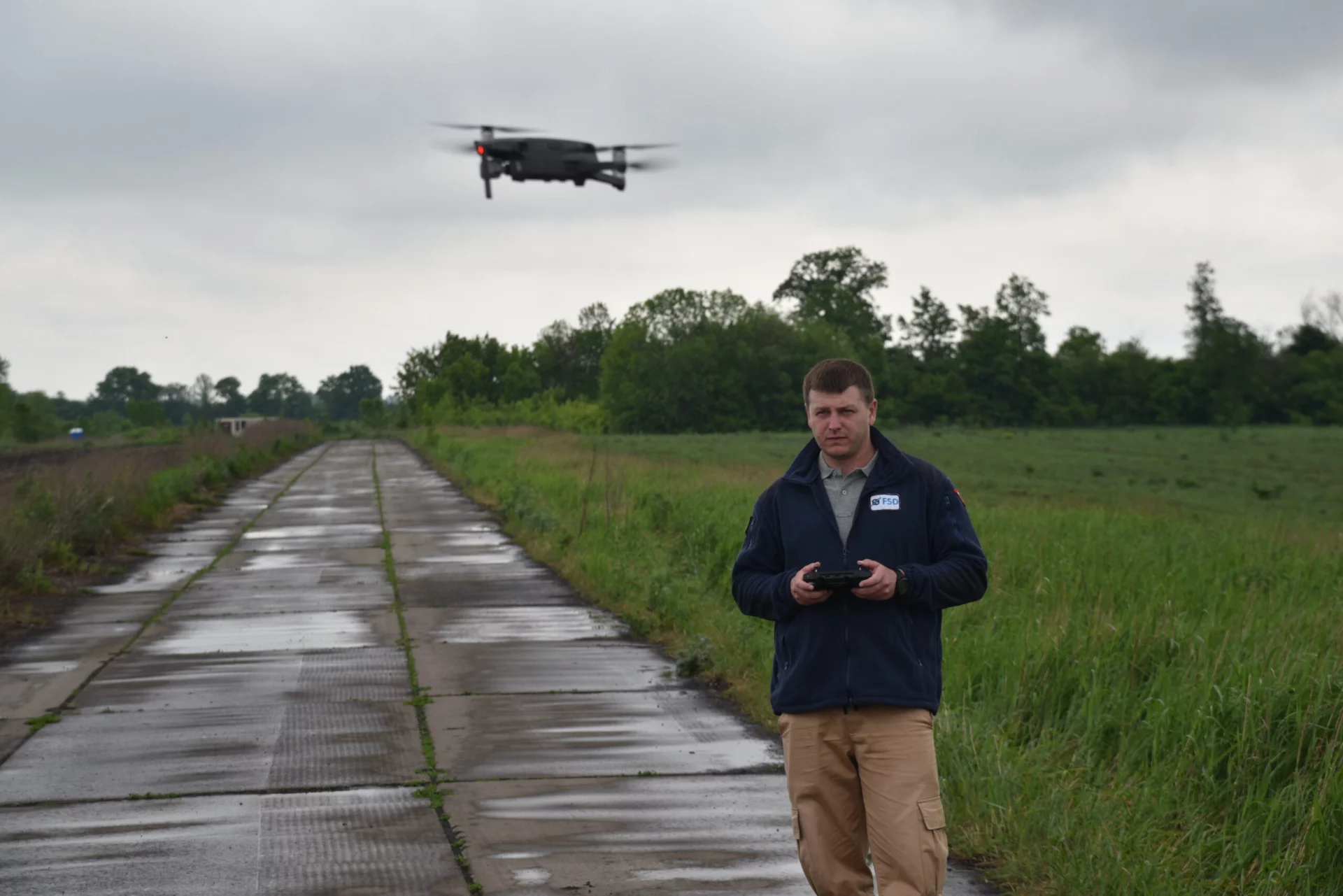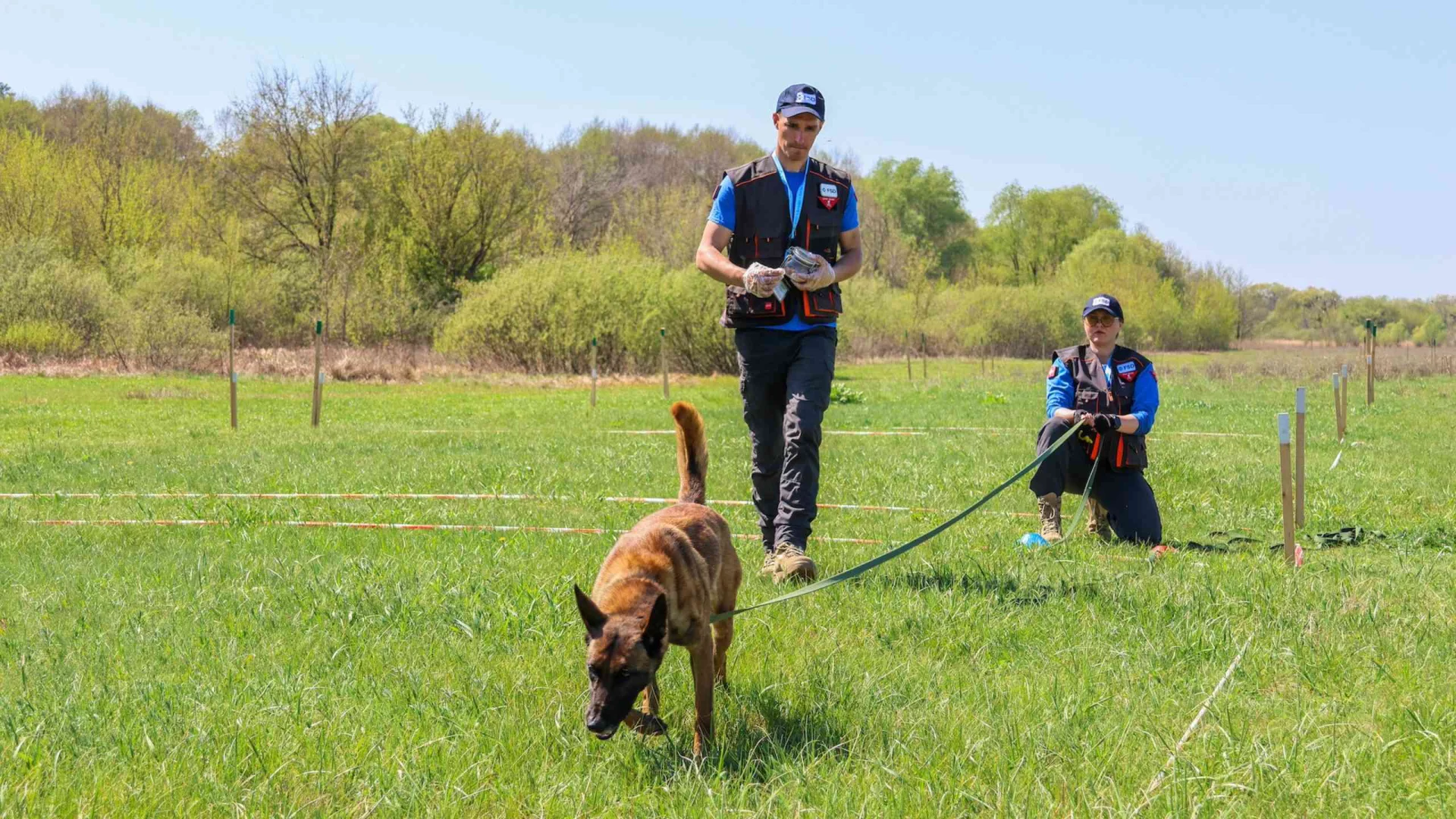We use audience measurement tools (such as Google Analytics 4 and Clarity), via Google Tag Manager, to understand how the website is used and to improve it. The data are used for statistical purposes only and are not used for targeted advertising.
Ukraine
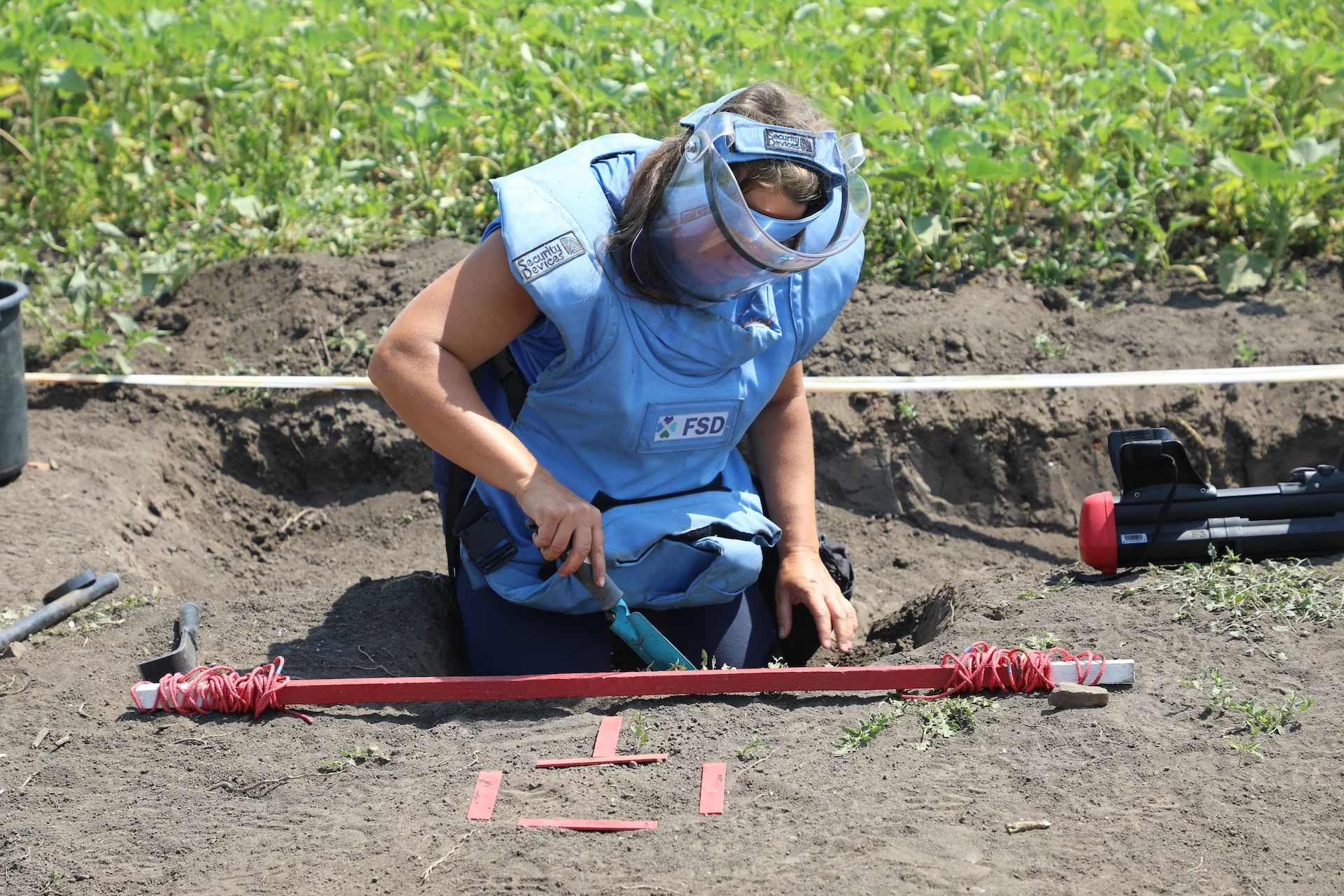
Mine Action
Humanitarian demining Capacity building Explosive ordnance risk education
Active in Ukraine since 2015, FSD currently operates in the Chernihiv, Kharkiv, Donetsk and Kherson regions. More than 500 staff work to locate and destroy landmines and explosive remnants of war, while also strengthening local capacities in humanitarian demining.
A quarter of the country potentially contaminated by landmines
The war in Ukraine has left a devastating legacy of anti-personnel and anti-vehicle mines, as well as munitions that failed to explode on impact, posing a constant threat to civilians. Up to a quarter of the country may be contaminated. These explosive hazards also restrict access to vital infrastructure, hinder the delivery of humanitarian aid, slow reconstruction and agricultural recovery, and keep communities living in constant fear.
25 FSD demining teams at work in Ukraine
In total, more than 500 FSD staff are working across the Chernihiv, Kharkiv, Donetsk and Kherson regions. The personnel are divided into twenty-five demining teams, eighteen non-technical survey teams and thirteen explosive ordnance risk education teams. Specialised mechanical demining machines are used to prepare rural land for clearance, while armoured construction machinery assists with clearing collapsed buildings. In 2025, mine detection dog teams were also deployed.
Our impact in Ukraine (since June 2022)
+390,000
people reached through explosive ordnance risk education sessions
+600
staff deployed
+1,500,000
m2 of land made safe
Clearing hazards, rebuilding lives
By clearing agricultural land, urban areas and key infrastructure, FSD has enabled farmers to return to work, supported reconstruction efforts, restored freedom of movement and allowed many displaced families to return home safely, contributing to greater stability in affected regions.
Through explosive ordnance risk education sessions, thousands of people have learned how to stay safe around mines and explosive remnants of war, significantly reducing the risk of accidents.
In 2024, FSD’s programme in Ukraine was supported by the Swiss Federal Department of Foreign Affairs, the United States Department of State, the World Food Programme, the Food and Agriculture Organisation, and various private donors.
News from Ukraine
View all
They learn to read, to write and to recognise unexploded ordnance
Polina, Nastia, and Sophia are between 8 and 9. They live in a village located in the province of Chernihiv,…
Children Prevention and risk education Ukraine
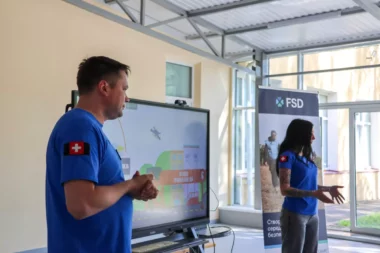
Beyond demining: preparing to hand over the reins
Faced with this reality, FSD — with the support of Switzerland — is working on two fronts: clearing land today,…
Humanitarian demining Prevention and risk education Ukraine
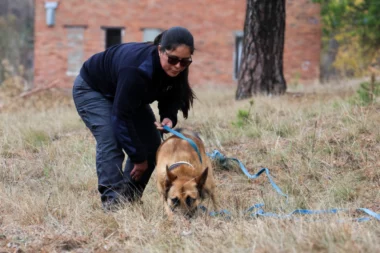
Reinforcements in Ukraine: our new four-legged recruits have arrived!
These Malinois and German Shepherds, with their exceptional sense of smell, are currently acclimatising with their handlers to adjust to their…
Mine detection dogs Humanitarian demining Ukraine
